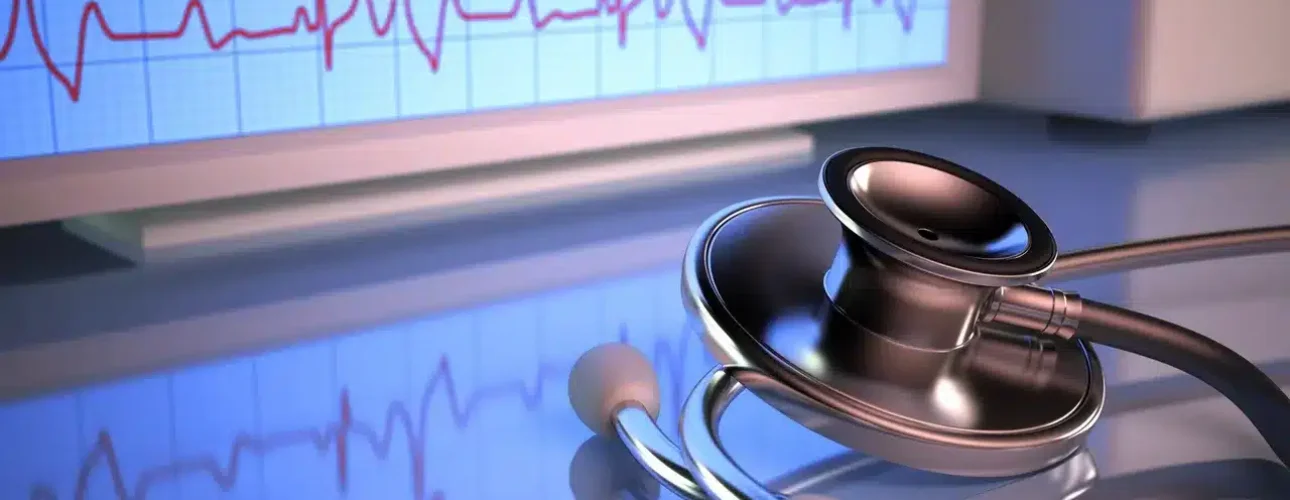Vascular disease is any abnormal condition of the blood vessels or your circulatory system. Due to an aging population, an increase in obesity, and chronic conditions like Type II diabetes, vascular diseases are a growing epidemic. Find out more about the many different conditions that can affect your circulatory system outside of the heart.
Vascular diseases outside the heart can “present” themselves anywhere. Peripheral artery disease (PAD) alone affects 8-12 million people in the US, affects women and men equally, and can occur in anyone at any time.
Vascular Disease Can Affect Anyone.
The cost in terms of pain, disability, and medical treatment are enormous. For example, healthcare costs related to PAD are more than $21 billion annually in the US alone. Stroke costs $33 billion, spent on hospitalizations and related healthcare. The costs continue to grow because vascular diseases are often diagnosed later and become a chronic issue that involves frequent complications.
Because the vascular system is so complex and far-reaching, diseases can appear anywhere in the body in many different forms. Vascular diseases often occur along with other diseases like diabetes or heart disease.
Use the information in the links below to learn more about 27 different types of vascular diseases including the most common: PAD, Atherosclerosis, and Carotid Artery Disease.
Understanding the Vascular System
Your vascular system, or the highways of the body, is composed of three types of blood vessels.
- Arteries, which carry oxygen-rich blood from your heart to your tissues and organs
- Veins, which carry the blood and waste products back to your heart
- Capillaries, which are tiny blood vessels that connect your small arteries to your small veins. The walls of the capillaries are thin and leaky, to allow for an exchange of materials between your tissues and blood.
Common Examples of Vascular Diseases
There are many different types of vascular disease. Some are caused by lifestyle factors, like level of physical activity and diet. Others are caused by genetics. And sometimes the onset of vascular disease can be linked to both, and to other factors as well. Some common types of vascular disease include:
- Aneurysm – a bulge or “ballooning” in the wall of an artery
- Atherosclerosis – a disease in which plaque builds up inside your arteries. Plaque is made up of fat, cholesterol, calcium, and other substances found in the blood.
- Blood clots, including deep vein thrombosis and pulmonary embolism
- Coronary artery disease and carotid artery disease, diseases that involve the narrowing or blockage of an artery. The cause is usually a buildup of plaque.
- Raynaud’s disease – a disorder that causes the blood vessels to narrow when you are cold or feeling stressed
- Stroke – a serious condition that happens when blood flow to your brain stops.
- Varicose veins – swollen, twisted veins that you can see just under the skin
- Vasculitis – inflammation of the blood vessels
What Causes Vascular Diseases?
The causes of vascular diseases depend on the specific disease. These causes include:
- Genetics
- Heart diseases such as high cholesterol and high blood pressure
- Infection
- Injury
- Medicines, including hormones
Sometimes the cause is unknown.
Who is at Risk for Vascular Diseases?
The risk factors for vascular diseases can vary, depending on the specific disease. But some of the more common risk factors include:
- Age – your risk of some diseases goes up as you get older
- Conditions that can affect the heart and blood vessels, such as diabetes or high cholesterol
- Family history of vascular or heart diseases
- Infection or injury that damages your veins
- Lack of exercise •Obesity
- Pregnancy
- Sitting or standing still for long periods of time
- Smoking
How are Vascular Diseases Treated?
Which treatment you get depends on which vascular disease you have and how severe it is. Types of treatments for vascular diseases include:
- Lifestyle changes, such as eating a heart-healthy diet and getting more exercise
- Medicines, such as blood pressure medicines, blood thinners, cholesterol medicines, and clot-dissolving drugs. In some cases, providers use a catheter to send medicine directly to a blood vessel.
- Non-surgical procedures, such as angioplasty, stenting, and vein ablation
- Surgery
Can Vascular Diseases be Prevented?
There are steps you can take to help prevent vascular diseases:
- Make healthy lifestyle changes, such as eating a heart-healthy diet and getting more exercise
- Don’t smoke. If you are already a smoker, talk to your health care provider for help in finding the best way for you to quit.
- Keep your blood pressure and cholesterol in check
- If you have diabetes, control your blood sugar
- Try not to sit or stand for up long periods of time. If you do need to sit all day, get up and move around every hour or so. If you traveling on a long trip, you can also wear compression stockings and regularly stretch your legs.
Schedule an Appointment Today!
At Vascular Care Specialists of Los Angeles, we strive to provide the best service, care, and results possible. If you are interested in a consultation regarding your vascular condition, give us a call at 626-275-9566 to schedule an appointment. You can also visit us at www.vcsla.com for more information.
